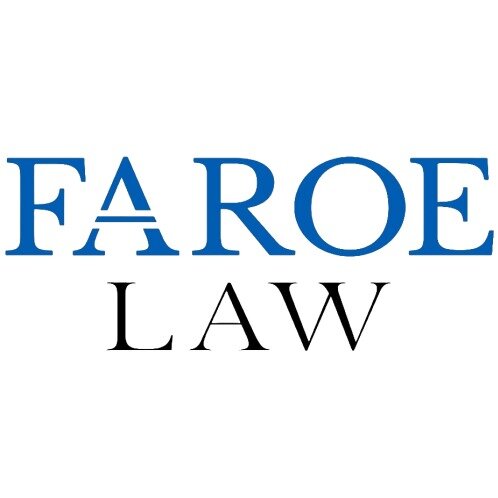Best Oil, Gas & Energy Lawyers in Faroe Islands
Share your needs with us, get contacted by law firms.
Free. Takes 2 min.
Or refine your search by selecting a city:
List of the best lawyers in Faroe Islands
About Oil, Gas & Energy Law in Faroe Islands
The Faroe Islands, an autonomous territory within the Kingdom of Denmark, is located in the North Atlantic Ocean. While the islands are primarily known for their fishing industry, they are also rich in potential energy resources, including oil and gas. Given their geological location, the Faroes have an active interest in exploring and possibly exploiting these oil reserves. This development is governed by a comprehensive legal framework aimed at managing resources sustainably while optimizing economic benefits for the islanders.
The energy sector in the Faroe Islands also includes renewable energy, where efforts are being made to diversify and invest in alternative energy sources like hydro and wind power. These initiatives are significant for reducing the dependency on imported energy and contributing to environmental sustainability.
Why You May Need a Lawyer
Engaging with the Oil, Gas & Energy sector can be complex, involving various legal challenges and compliance requirements. Here are several scenarios where you may need legal assistance:
- Licensing and Permits: Navigating the complicated process of obtaining exploration or production licenses.
- Contractual Agreements: Drafting and reviewing contracts with partners, suppliers, or government entities.
- Regulatory Compliance: Ensuring adherence to local laws, regulations, and environmental standards.
- Litigation and Dispute Resolution: Representing your interests in court or alternative dispute resolution forums.
- Investment and Financing: Facilitating investments and securing the necessary financial backing for energy projects.
Local Laws Overview
The key aspects of local laws in the Faroe Islands relevant to Oil, Gas & Energy include:
- Petroleum Act: This act governs all activities related to oil exploration and production, including licensing processes, operational conduct, and revenue collection.
- Environment Protection: Strict regulations are in place to protect the unique marine and terrestrial ecosystems from the impacts of energy exploration and production activities.
- Energy Policy: The Faroese government actively promotes renewable energy projects to meet future energy demands sustainably.
- Taxation and Royalties: Specific tax regimes and royalty arrangements are established to ensure fair sharing of revenues generated from resource extraction.
- Maintenance of Safety Standards: Legal provisions for maintaining high safety standards to protect workers and the environment.
Frequently Asked Questions
1. Is oil exploration currently active in the Faroe Islands?
Yes, there are active licenses for oil exploration in the Faroe Islands. However, exploration activities are subject to specific regulations to ensure minimal environmental impact.
2. What does the Petroleum Act regulate?
The Petroleum Act regulates the exploration, production, and transportation of oil and gas resources. It sets out the licensing process, operational guidelines, and revenue management.
3. What are the environmental protection measures for energy projects?
Environmental protection measures include stringent impact assessments and continuous monitoring to minimize damage to the ecosystem from exploration and production activities.
4. How are disputes in the energy sector resolved?
Disputes can be resolved through litigation in court or through alternative dispute resolution methods such as arbitration, mediation, or negotiation.
5. What kind of taxes apply to oil and gas companies?
Oil and gas companies are subject to corporate income tax, royalties on produced resources, and additional taxes related to environmental impact and safety compliance.
6. Are there incentives for renewable energy projects?
Yes, the Faroese government provides various incentives to promote renewable energy initiatives, including subsidies and tax benefits.
7. Can foreign companies invest in the Faroese energy sector?
Yes, foreign investment is welcome, but companies must comply with local laws and guidelines regarding foreign ownership and participation.
8. How can I obtain a license for oil exploration?
Obtaining a license involves applying to the relevant government body, complying with legal and regulatory requirements, and demonstrating technical and financial capability.
9. What legal assistance is available for energy startups?
Legal assistance is available from law firms specializing in energy law, offering services such as contract drafting, regulatory compliance guidance, and partnership agreements.
10. What role does the government play in energy regulation?
The government plays a pivotal role through its regulatory bodies, setting policies, standards, and regulations to ensure sector efficiency, safety, and environmental compliance.
Additional Resources
Several resources and organizations can be valuable for someone needing legal advice in the Oil, Gas & Energy sector:
- The Faroese Geological Survey: Provides research and data on geological prospects and potential energy resources.
- The Ministry of Industry and Trade: Manages licenses, regulations, and promotes investment in the energy sector.
- The Faroese Environment Agency: Enforces environmental regulations and conducts impact assessments.
- Local Legal Firms: Specialized firms offering expertise in energy law, contracts, and compliance.
Next Steps
If you need legal assistance in the Oil, Gas & Energy sector in the Faroe Islands, it's crucial to identify your needs and consider the following steps:
- Identify the Issue: Clearly define the legal matter or issue you need assistance with.
- Research Lawyers: Look for lawyers or law firms specializing in the oil, gas, and energy sectors with a proven track record.
- Set Up Consultations: Schedule consultations to discuss your needs and evaluate potential lawyers' expertise and fit for your case.
- Understand Fees: Make sure you understand the fee structure and billing practices of the legal services.
- Document and Share Information: Prepare and share all relevant documents and information with your lawyer to facilitate an efficient and effective legal process.
Lawzana helps you find the best lawyers and law firms in Faroe Islands through a curated and pre-screened list of qualified legal professionals. Our platform offers rankings and detailed profiles of attorneys and law firms, allowing you to compare based on practice areas, including Oil, Gas & Energy, experience, and client feedback.
Each profile includes a description of the firm's areas of practice, client reviews, team members and partners, year of establishment, spoken languages, office locations, contact information, social media presence, and any published articles or resources. Most firms on our platform speak English and are experienced in both local and international legal matters.
Get a quote from top-rated law firms in Faroe Islands — quickly, securely, and without unnecessary hassle.
Disclaimer:
The information provided on this page is for general informational purposes only and does not constitute legal advice. While we strive to ensure the accuracy and relevance of the content, legal information may change over time, and interpretations of the law can vary. You should always consult with a qualified legal professional for advice specific to your situation.
We disclaim all liability for actions taken or not taken based on the content of this page. If you believe any information is incorrect or outdated, please contact us, and we will review and update it where appropriate.
Browse oil, gas & energy law firms by city in Faroe Islands
Refine your search by selecting a city.













